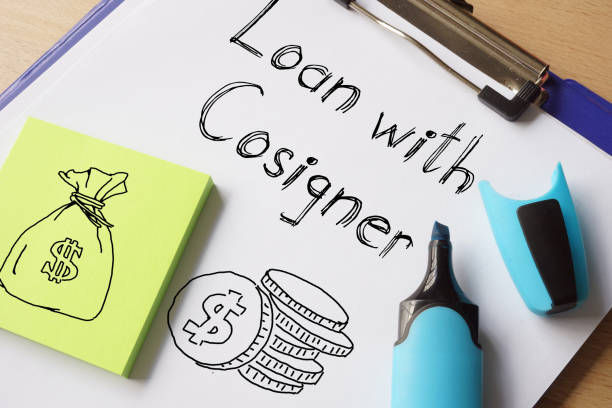Does Getting Preapproved Hurt Your Credit?
Does getting preapproved hurt your credit? This article reveals everything you may need to know concerning mortgage preapproval as well as whether getting preapproved will hurt your credit.
There is one crucial action you should take to increase your chances of getting your desired home and that it is obtaining a lender’s preapproval for a mortgage loan.
If you accomplish this, sellers will think more favorably of you as a potential customer. If there are several bids, sellers are more inclined to pick the one with the preapproved mortgage than the one with the unsecure financing.
Does obtaining a mortgage preapproval, however, hurt your three-digit FICO credit score? A little, however the decline in your credit score will only last a short time.
Furthermore, the benefits of being preapproved significantly exceed the slight drop in your credit score.
ALSO READ:
Do minors get taxes taken out of their paycheck?
What Is A Mortgage Preapproval?
Mortgage preapproval is a common first step in the process of purchasing a home. Basically, the borrower requests that mortgage lenders review their finances, like their salary, credit history, amount of debt they have remaining, and capacity to pay a down payment.
This aids the lender in evaluating whether the borrower is a trustworthy candidate for a mortgage.
The borrower’s credit report serves as one of the primary sources of financial data for the lender.
Your eligibility for a loan and its likely size are determined by the loan officer using your credit report and financial records.
The interest rate and other costs associated with the anticipated loan amount are also covered by preapproval.
Preapproval doesn’t imply you’ll get a loan, however, it lets sellers know that you have sufficient funds to get approved.
Once you’re eligible, the lender provides you with a preapproval letter indicating their readiness to grant you the loan and outlining possible parameters. This puts you ahead of other competing buyers.
Nevertheless, you ought to be aware that Preapproval letters frequently expire after 30 to 60 days.
Therefore, majority of individuals postpone preapproval until they are actively looking for a home.
How Does Mortgage Preapproval Function?
Knowing how much you can spend on a home will be helpful when house hunting. You can decide this with mortgage preapproval.
You will provide copies of your most crucial financial records throughout the preapproval procedure so that your lender can confirm your income.
These normally include statements from your most recent two months’ worth of bank accounts, two most recent paycheck stubs, your two most recent W-2 forms and your two most recent tax returns.
Additionally, you’ll authorize the lender to access your credit reports and score. Once your lender gets this details, it will decide on the amount of mortgage financing that it is ready to extend to you.
You will receive a preapproval letter in writing from your lender containing this information.
This letter is crucial. First, you will be fully aware of the size of mortgage you can obtain. Because of this, you won’t waste time searching for houses you simply cannot afford.
If your lender grants you preapproval for a $250,000 mortgage, homes worth $300,000 or more won’t be worth your time to look at.
Second, buyers with preapproval letters are seen favorably by sellers compared to those without them.
Sellers are aware that if buyers have previously received financing approval, the likelihood of their house transaction falling through is much reduced.
When competing for a home in a bidding battle, if your offer is essentially equivalent to those of other buyers who aren’t preapproved, your bid has a better chance of winning the seller’s favor.
Preapproval for a mortgage is simple, and you can apply for preapproval with many lenders.
Prequalification for a mortgage is not the same as preapproval. You only disclose your monthly income to lenders when you apply for prequalification.
Using your data, lenders then determine the amount of loan you can acquire, however, they do not confirm your salary or run a credit check.
Prequalified buyers are not viewed to be trustworthy by sellers the way preapproved ones are.
ALSO READ:
Can I use JetBlue travel bank credit on American airlines?
What businesses does shaq own?
Does Getting Preapproved Hurt Your Credit?
Your credit score may be severely inquired upon as a result of a mortgage preapproval should you decide to apply for the credit.
Preapproval is a crucial stage in the process of purchasing a home and it is advised to have one despite the fact that it can hurt your credit score.
The best part is that this brief low point in your credit score will soon disappear. Your score will rapidly bounce back from any minor dips it may experience if you continue paying your monthly bills early enough and limit your credit card debt to a minimum.
You also won’t need to fret about looking around for a mortgage. If you quickly submit applications for mortgage loans with numerous lenders, your score won’t be negatively impacted each time these lenders examine your credit.
Since you are just looking for a single loan, there will be simply one hard inquiry for all of the credit pulls from various lenders.
Consequently, even if you receive preapproval from, say, three lenders, just a few points will be deducted from your credit score as a result.
Kindly ensure to submit applications for all of your preapprovals a few days apart from one another.
By doing so, every hard inquiry will be treated as a single inquiry for the purposes of calculating credit scores.
Furthermore, never let your slight credit blip prohibit you from obtaining preapproval. Preapproval has many advantages, including letting you know how much house you can buy, that offset the slight hit to your credit score.
The Effect Of Credit Inquiries On Your Score
A preapproval for a mortgage has many benefits .There is a drawback, though: it will affect your credit.
This is as a result of your consent for your lender to check your credit records and obtain your credit score.
A sort of note known as an inquiry appears on your credit report whenever someone or something draws your credit.
The following are the two types of inquiries and their distinctions:
Hard Credit Inquiry
Any time a lender checks a borrower’s credit, a hard inquiry occurs. Lenders do this when considering whether to lend money, such as when you request a mortgage preapproval.
You will see this kind of inquiry on your credit report. Additionally, because it links you to new debt, it can momentarily affect your credit score.
One or two hard inquiries are probably all that may cause you to lose a few points. Your score won’t be severely impacted by this.
Nevertheless, a greater effect could result from several hard inquiries in a single year.
Soft Credit Inquiry
A soft credit inquiry is a bit more lenient than a hard credit inquiry. The only time it happens is after your lender gives you a rate estimate.
If you have ever requested a credit card or gotten a credit card preapproval letter in the mail, perhaps a soft inquiry took place.
Fortunately, in contrast to hard inquiries, soft credit checks have no effect on your credit score. This is due to the fact that you are not really seeking for credit.
How Long Will The Effects Of Your Preapproval Last on Your Credit?
You might discover that your credit score dropped after a hard credit inquiry. Normally, the decrease in points is just temporal. Aside from that, the actual inquiry is erased off your credit report after two years.
How to Get Ready for a Mortgage Preapproval and Improve Your Credit
Before submitting an application for a mortgage or preapproval, ensure to check your credit history. It is recommended that you examine your credit score a year or so before you start house hunting.
That will provide you sufficient time to concentrate on your score and, if necessary, make improvements.
To assist get your credit ready for a mortgage preapproval, you can take the below actions:
- Check your credit score. Search for any warning signs or associated risk factors during this check. The things on your credit report that are specified have the biggest adverse effects.
- Examine your credit report and challenge any errors you uncover.
- Do not abuse your credit card or seek for new types of credit. Your usage ratio won’t rise as a result.
- Strive to reduce or pay off whatever debts you may have, especially high-interest debt, such as a credit card.
- Keep an eye on to your recurring invoices and expenditures.
Do You Need Preapproval?
Preapproval for a mortgage loan is among the most crucial phases in the process of purchasing a home.
It is not a must, however, it does demonstrate to home seller your commitment to the purchase and will let you know what kind of house you can afford.
Do not disregard this phase, despite the fact that hard inquiry can result in a modest decline in your credit score.
Keyword: Does getting preapproved hurt your credit
Conclusion
We have come to the end of this wonderful article. We strongly believe that this article on “does getting preapproved hurt your credit” has explained to you everything you need to know concerning mortgage preapproval.
If you’re prepared to purchase a home, get preapproved with a mortgage lender right away if you can. Your offers will be more readily accepted by sellers.
Furthermore, possessing a preapproval letter entails that you will not spend your time searching for homes that are too expensive for you.








